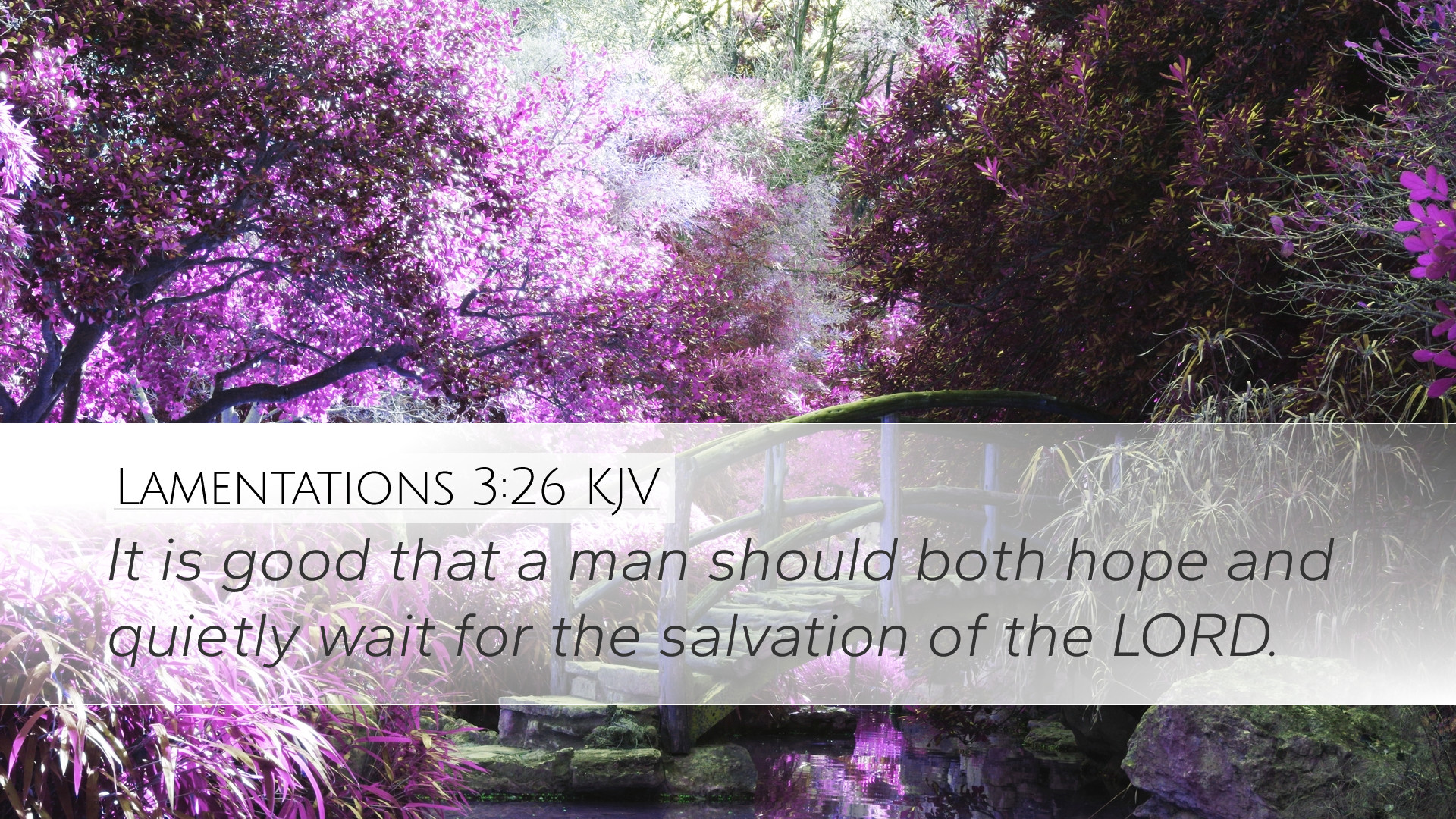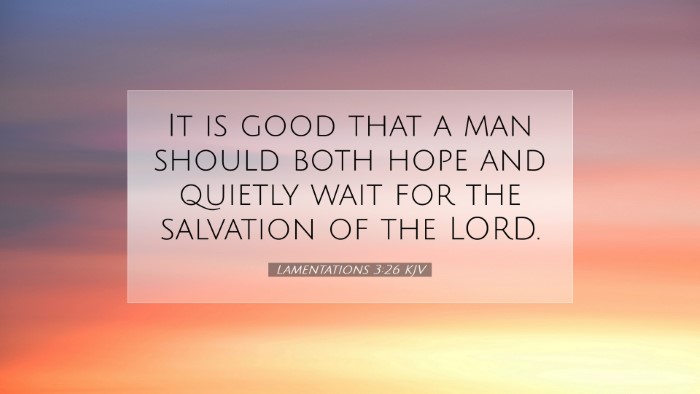Old Testament
Genesis Exodus Leviticus Numbers Deuteronomy Joshua Judges Ruth 1 Samuel 2 Samuel 1 Kings 2 Kings 1 Chronicles 2 Chronicles Ezra Nehemiah Esther Job Psalms Proverbs Ecclesiastes Song of Solomon Isaiah Jeremiah Lamentations Ezekiel Daniel Hosea Joel Amos Obadiah Jonah Micah Nahum Habakkuk Zephaniah Haggai Zechariah MalachiVerse
Lamentations 3:1 Lamentations 3:2 Lamentations 3:3 Lamentations 3:4 Lamentations 3:5 Lamentations 3:6 Lamentations 3:7 Lamentations 3:8 Lamentations 3:9 Lamentations 3:10 Lamentations 3:11 Lamentations 3:12 Lamentations 3:13 Lamentations 3:14 Lamentations 3:15 Lamentations 3:16 Lamentations 3:17 Lamentations 3:18 Lamentations 3:19 Lamentations 3:20 Lamentations 3:21 Lamentations 3:22 Lamentations 3:23 Lamentations 3:24 Lamentations 3:25 Lamentations 3:26 Lamentations 3:27 Lamentations 3:28 Lamentations 3:29 Lamentations 3:30 Lamentations 3:31 Lamentations 3:32 Lamentations 3:33 Lamentations 3:34 Lamentations 3:35 Lamentations 3:36 Lamentations 3:37 Lamentations 3:38 Lamentations 3:39 Lamentations 3:40 Lamentations 3:41 Lamentations 3:42 Lamentations 3:43 Lamentations 3:44 Lamentations 3:45 Lamentations 3:46 Lamentations 3:47 Lamentations 3:48 Lamentations 3:49 Lamentations 3:50 Lamentations 3:51 Lamentations 3:52 Lamentations 3:53 Lamentations 3:54 Lamentations 3:55 Lamentations 3:56 Lamentations 3:57 Lamentations 3:58 Lamentations 3:59 Lamentations 3:60 Lamentations 3:61 Lamentations 3:62 Lamentations 3:63 Lamentations 3:64 Lamentations 3:65 Lamentations 3:66

